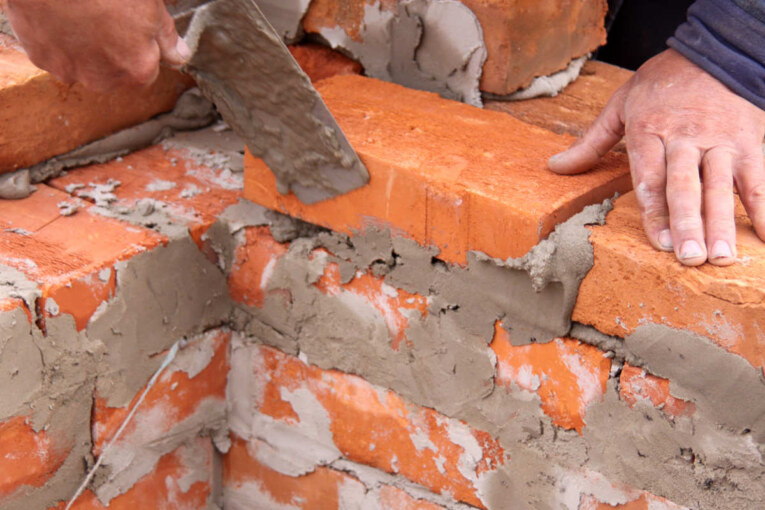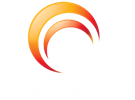
Mortar is a workable paste which is prepared by adding required amount of water to a mixture of binding material (also called matrix) and fine aggregate (also called adulterant). This plastic paste is useful to hold building materials such as stone or brick together.
Types of Mortars used in Building Construction:
There are different types of mortars used in building construction works based on nature of application, binding material, density and special purposes for which it is used.
Following are the types of mortars based on different factors:
- Nature of application
- Based on binding material used
- Bulk density
- Special purpose mortars
Types of Mortars Based on Nature of Application
There are two types of mortars based on the nature of application. They are
- Brick or stone laying mortar
- Finishing mortar
Bricklaying or Stone Laying Mortar
Generally, in masonry walls the structural units such as stones or bricks are bonded together by using mortar. The proportions of ingredients for this purpose is decided with respect to the kind of binding material used.
Finishing Mortar
Finishing mortar is used for pointing and plastering works. For general type of plastering cement or lime mortar is used. Finishing mortar is also used for architectural effects of building to give aesthetic appearances. The mortar used for ornamental finishing’s should have great strength, mobility and resistance against atmospheric action like rain, wind, etc..
Types of Mortars Based on Binding Material Used
In mortar, Binding material play key role. The quality, durability and strength of the mortar will mainly depend on the quantity and quality of binding material used. Classification based on the binding material used is as follows.
- Cement mortar
- Lime mortar
- Gypsum mortar
- Gauged mortar
- Surkhi mortar
- Aerated cement mortar
Cement Mortar
In this type, cement is used as binding material and sand is used as adulterant (fine aggregate). The proportion of cement and sand is decided based on the specified durability and working conditions. Cement mortar will give high strength and resistivity against water. The proportion of cement to sand may varies from 1:2 to 1:6.
Lime Mortar
In case of lime mortar, lime is used as binding material. There are two types of limes namely fat lime and hydraulic lime. Fat lime in lime mortar requires 2 to 3 times of sand and it is used for dry work. Hydraulic lime and sand in 1:2 ratios will give good results in damp conditions and also suitable for water logged areas. The lime mortar has a high plasticity so; it can be placed easily.
Gypsum Mortar
Gypsum mortar consists of plaster and soft sand as binding material and fine aggregate. In the Egyptian ancient structures called as pyramids, gypsum mortar is used. Gypsum mortar will have low durability in damp conditions.
Gauged Mortar
Gauged mortar consists lime, cement and sand. We knew that lime mortar has high plasticity and cement has high strength than lime so, whenever we mixed these both in some proportions then the resultant will give two properties in economical way. So, this is also called as composite mortar or lime-cement mortar. Usually 1:6 to 1:8 ratio of cement to lime will be used to prepare gauged mortar.
Surkhi Mortar
Surkhi mortar consists lime, surkhi and water. Surkhi is used as adulterant or fine aggregate. Sometimes half amount of sand and half amount of surkhi also used. Surkhi is finely powdered burnt clay which is free from any admixtures, impurities. It will give more strength than sand and cheaply available in the market.
Aerated cement mortar
General cement mortar does not contain good plasticity and workability. To make it more plastic and workable, air entraining agents are added to cement mortar. The resulted mortar is called as aerated cement mortar.
Types of Mortars Based on Bulk density
Based on the bulk density of mortar in dry state, mortars are classified into two types.
- Heavy mortar
- Lightweight mortar
Heavy mortar
If the mortar having bulk density of 15 KN/m3 or more then it is called as heavy mortar. Generally heavy quartzes are used as adulterants in this type of mortars.
Lightweight mortar
If the mortar having bulk density of less than 15 KN/m3 then it is called as light mortar. Generally light porous sands, soft sands are used as adulterants in this type of mortars
Special purpose mortars
Other than the above described types there are some mortars with special purposes. They are
- Fire resistant mortar
- Lightweight mortar
- Packing mortar
- Sound absorbing mortar
- X-ray shielding mortar
- Chemical resistant mortar
Fire Resistant Mortar
If there is any fire warnings to the structures in a particular zone, then we will go for fire resistant mortar which acts as fireproof shield. By adding aluminous cement to the fine powder of fire bricks we will get fire resistant mortar.
Lightweight Mortar
Lightweight mortar is generally used in the soundproof and heat proof constructions. It will be obtained by adding saw dust, wood powder or, asbestos fibers, jute fibers coir etc. to the lime mortar or cement mortar.
Packing Mortar
The constituents of packing mortars are generally cement-sand, cement-loam or sometimes cement-sand-loam. This type of mortar is used to pack the oil wells. Packing mortar should be of high homogeneity, water resistance and high strength.
Sound Absorbing Mortar
It is used to reduce the noise level and acts as sound proof layer. It consists cement, lime, gypsum, slag etc. as binding materials and pumice, cinders as adulterants.
X-ray Shielding Mortar
To provide protection against ill effects of X-rays, the X-ray room walls and ceilings are plastered by X-ray shielding mortar. This is heavy type mortar with bulk density around 22KN/m3. Fine aggregates from heavy rock and suitable admixtures are used to prepare this type of mortar.
Chemical Resistant Mortar
It is generally used where there is a chance of chemical attack on the structures. There are so many types of chemical resistant mortars can be prepared but the selection of mortar is dependent of expected damage by particular chemical or group of chemicals.
The additives added may not resist all the chemical attacks. For example, silicate type chemical mortar resists nitric, chromic, Sulphuric or any acidic damages but it cannot prevent the structure against damage by alkalies of any concentration.


